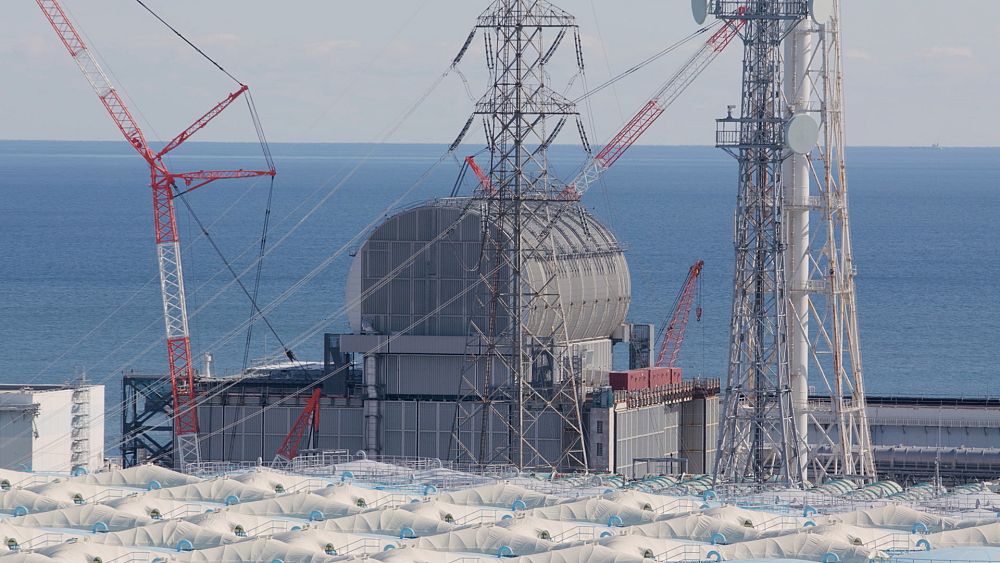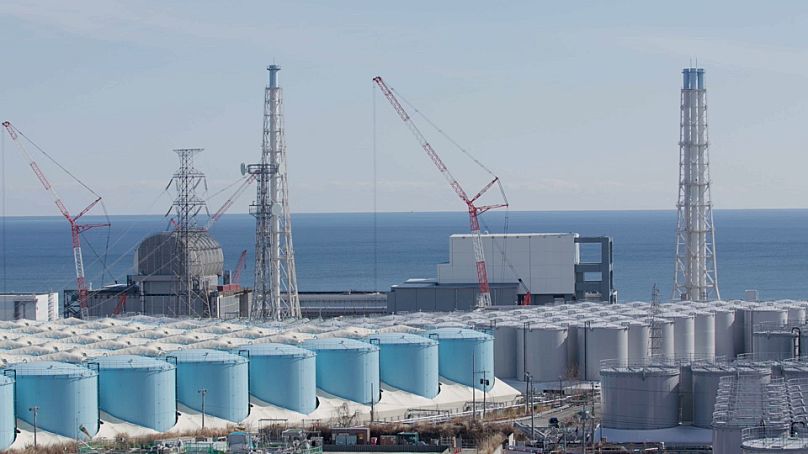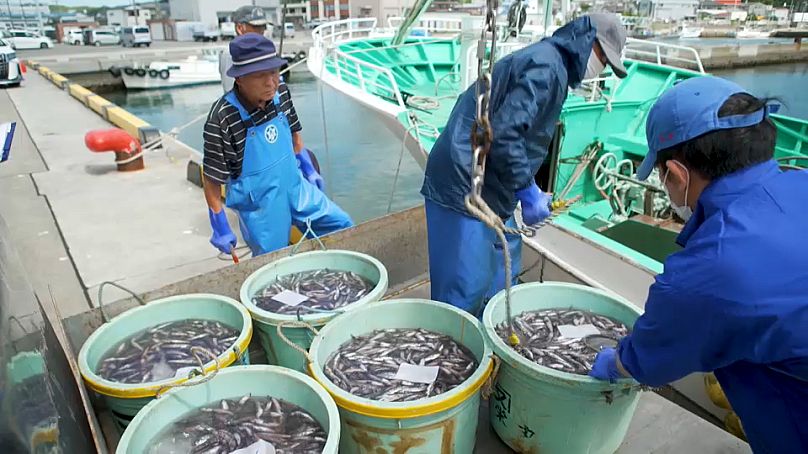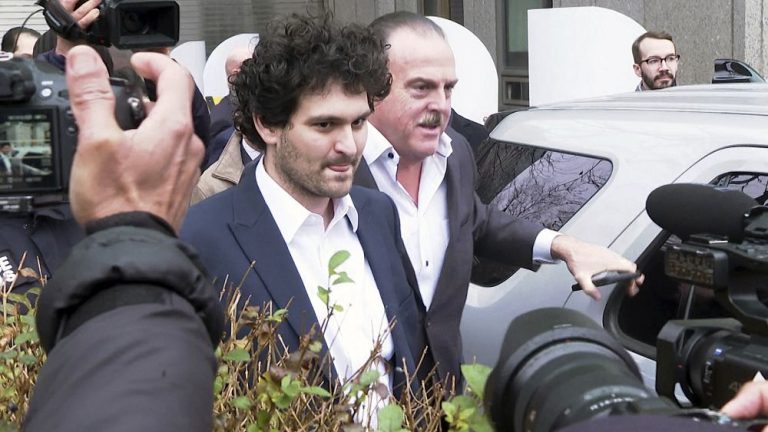
11 years after the Fukushima disaster, Japan is facing a new challenge: the discharge of treated water into the sea. Since the tsunami of 11 March 2011, Japan has been continuing the decommissioning and the decontamination of the site, which should last 30 to 40 years.
But today the priority, explains one official of TEPCO, the operator of the plant, is water.
“The water that accumulates every day has been used to cool the molten fuel. And there is also water from underground springs or rainfall that accumulates”, explained TEPCO’s Kimoto Takahiro.
The contaminated water is treated in ALPS, the unit that removes virtually all radioactive substances. But the storage tanks have reached their maximum capacity, meaning they have to be emptied into the sea.
However, one radioactive substance remains in small quantities: tritium, which is inseparable from the water.
After a new treatment, the water will be released into the sea through a tunnel, which is one kilometer long and built at a depth of 16 meters. It will be completed in the spring.

Marine life
In the plant, fish are raised to analyse the impact on marine fauna. Opponents say tritium from a nuclear accident is more dangerous. But Jean-Cristophe Gariel, Deputy Director of the Institute of Radiological Protection and Nuclear Safety told Euronews that that isn’t true.
“Tritium is a radioactive element with a low hazard”, explained the French scientist. “The characteristics of tritium that will be released at Fukushima are similar to the characteristics of those released from nuclear power plants around the world.”
Nevertheless, the first concerned — the fishermen of Fukushima — are worried about the reputation of their products.
“What worries us the most is the negative reputation this creates”, said Nozaki Tetsu, Chairman of the Fukushima Prefectural Federation of Fisheries Cooperative Associations. “In terms of the explanations that we’ve had from the government over the last 10 years, their explanations have not been false – so we appreciate their efforts.”

Japan’s Ministry of Economy, Trade and Industry is pleased that Britain lifted import restrictions on products from the region last June — a sign of returning confidence.
Tanabe Yuki, Director for International Issues at the Ministry of Economy, Trade, and Industry’s Nuclear Accident Response Office told Euronews, “So far we have held about 700 meetings with stakeholders, including the fisheries industry, to listen to their opinions. We have developed concrete projects to combat the negative reputation.”
‘Remarkable progress’
Japan has taken all the necessary precautions on this sensitive issue of the discharge of treated water and has asked the International Atomic Energy Agency (IAEA) to supervise the operations.
In May 2022, Rafael Grossi, the director of the IAEA, visited Fukushima, and praised the “remarkable progress on decommissioning at Fukushima Daiichi since his last visit two years ago.”
The UN agency has set up a special task force. Last November, Gustavo Caruso, the head of this mission, returned to Fukushima Daiichi.
“Before the water discharge begins, the IAEA will issue a comprehensive report containing all collective findings until now, our conclusions about all this process. All the standards we apply are representing a high level of safety”, Caruso confirmed.
The first discharges are expected to begin next year, in what will be the new step in the reconstruction of a region that believes in its future.















+ There are no comments
Add yours